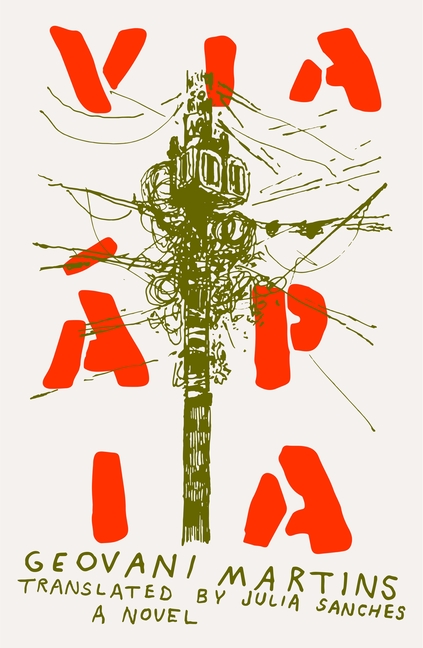Sad, funny, and moving ... While the occupation is the novel’s background, as in any war novel the real interest is the lives of the people who live under and through it, focusing on individual, everyday life. And here might be the novel’s shakiest aspect. Small actions principally provide color: quitting jobs, complaining about bosses, efforts to make it with women of interest, climbing nearby Pedra da Gávea mountain, stalling the landlord’s effort to evict Biel, Douglas, and Murilo. But this stuff does not move the story forward. What fills most of it is talking and drugs ... It wears thin and makes the novel seem like a 225-page story stuffed into 352 pages ...
I’m not qualified to assess Julia Sanches’s translation, but she leaves in enough undefined Brazilian slang words (menó, neguim, spliff, churrasco, boca), and the occasional song lyrics are all untranslated, that we never forget, despite the profusion of English profanity, that we’re in America but not North America, not Miami or Los Angeles. Reading her rendering of these poignant voices, we can’t help but think that in many respects the plight of poor young men in the ’hood is everywhere alike.
Read Full Review >>

